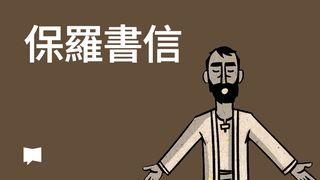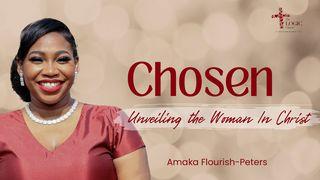Why Trust the Bible?預覽

Didn’t a group of men decide what would be in the Bible?
Today, we’re tackling the question of who decided what should or shouldn’t have been put into the Bible. We may well have in our possession well-preserved writings from authors based on eyewitness accounts, but sceptics and believers alike might wonder: Hasn’t what survived essentially been selected? In which case, the prejudices of the selectors will have determined what we’re reading? Is the Bible the ultimate power play?
To answer these questions, it’s important to know a bit of early church history. The first-century church grew at a phenomenal rate and spread over the breadth of the Mediterranean world, flourishing across Europe, Asia, and Africa. Letters were the means of communication between these distant congregations. The apostles would write messages and, as today’s passages illustrate, tell the congregation to share them with believers nearby.
This tradition of sending, copying, and sharing letters means that today, we have distinct streams of New Testament manuscripts in great numbers from different places around the globe, dating back to the time of the events they record and preserved in various languages. As the writers instructed, churches shared and preserved these letters and gospels from the time the apostles were in their midst and the documents were being written. And we have evidence that almost immediately, these letters and gospels were treated as authoritative and scriptural. The writings of Clement (Bishop of Rome), Justin Martyr, Athanasius, and other early church fathers refer to the various books of the New Testament as scripture. These individuals didn’t choose what was or wasn’t scriptural; they merely recognised what was already widely and unanimously accepted by the worldwide body of followers.
Eusebius (born in 270 AD) gives us some insight into this when he distinguished between three categories of writings:
- Books universally acknowledged as scriptural (homolegoumena)
- Books whose scriptural status was disputed by some (antilegoumena)
- Books which should be rejected as spurious (notha)
Christians didn’t begin to regard the various books as authoritative simply because someone decreed that they were. The gospels and all the other homolegoumena writings were exactly that – agreed by all already. Where the inspiration of books was challenged (as in the case of James, Jude, 2 Peter, 2 and 3 John, and Revelation), these queries were dealt with openly and all evidence was duly (and communally) scrutinised.
It’s crucial to understand that the church didn’t choose the biblical canon; rather, it officially recognised the inspiration of certain books. The divine authority of the twenty-seven books of the New Testament was organically and generally accepted by the worldwide body of believers before being merely confirmed by church council leaders in the first few centuries after the death and resurrection of Jesus. We’ve already acknowledged that there’s something radically organic and grassroots about the Bible. Knowing how its contents were widely and unanimously acclaimed as God-breathed should make us more confident than ever that this book can be trusted.
關於此計劃

“You don’t seriously believe all that stuff in the Bible, do you?” “Isn’t it sexist?” “How could any educated person believe in all the miracles?” If you’ve ever asked or been asked these kinds of questions, then this plan is for you. Theologian Amy Orr-Ewing tackles six common questions about the Bible that can cause Christians to doubt and seekers to reject the faith before they encounter Jesus.
More









